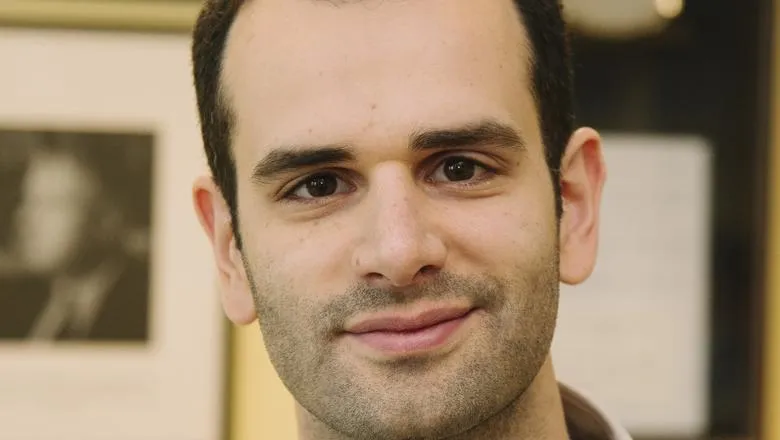07 December 2017
Dr George Booth wins ERC Grant
Dr George Booth, Royal Society University Research Fellow in the Department of Physics, was awarded a European Research Council (ERC) Starting Grant earlier this year. This grant is awarded to early career researchers to help them establish a team to develop cutting-edge areas in their field.

Dr Booth studies how to create and improve accurate computer models of electrons and their interactions with each other. We asked him to tell us more:
‘Electrons, and the interactions between them and the nuclei at the centre of all atoms, are the glue which bind together all the materials in our surroundings. In order to advance techniques to computationally predict the properties of these materials, for advanced materials design or fundamental understanding of chemical reactions, we need to consider these many electrons and their interactions between each other. This gives rise to two problems that are at the heart of much research today: interacting many-particle systems, and quantum mechanics. Because the electrons are so small, their interactions are governed by the laws of quantum mechanics, which complicates the problem of understanding the concerted motion of many particles, since the particles cannot be said to have any definite position in space, or speed through it!
This grant will provide support to make a difference in this area. Novel computational algorithms are being developed which aim to tackle this quantum many-electron problem at the heart of both theoretical chemistry and computational materials science, by considering the electrons within an inherently probabilistic approach. The motion of the electrons are then computed using random numbers within these probability distributions. It may seem surprising that exploiting random numbers and their associated uncertainty can actually resolve complicated physics more efficiently on a computer, but huge gains are expected in the systems that we can understand, with unprecedented detail compared to existing approaches.’
To follow Dr Booth’s research endeavours, see his group website at www.boothgroupresearch.com for the latest information.
The faculty congratulates Dr Booth on the awarding of his grant and wish him success in his research.

